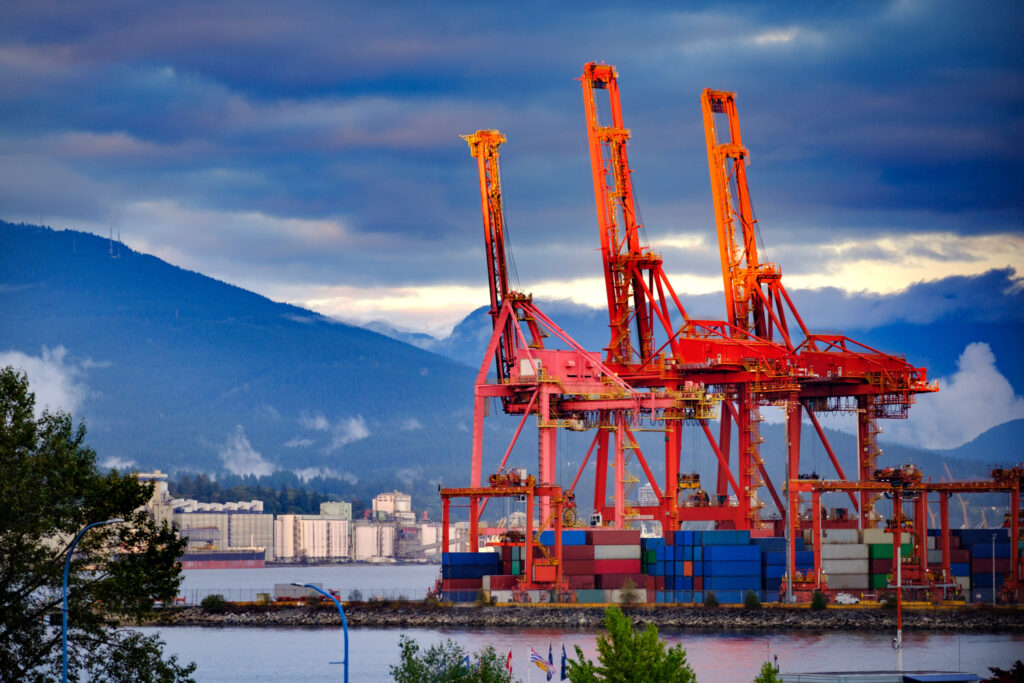Vancouver port’s old truck phase-out begins Sept. 15 – Truck News
The Vancouver Fraser Port Authority announced Wednesday that its Rolling Truck Age Program will go into effect on Sept.
15, following additional stakeholder engagement earlier this year. The program phases out older container trucks serving the port, for the benefit of the region's air quality and local communities' health, a press release said. United Truckers Association (UTA) spokesman Gagan Singh told trucknews.com the group is considering legal action and reaching out to politicians.
 (Photo: iStock)
(Photo: iStock)
UTA held a rally on Canada Day last year where about 200 trucks rolled from Surrey to downtown Vancouver to highlight the "unfair and biased policy."
"The container trucking sector plays a vital role in supporting Canada's supply chains and keeping trade moving, but we also recognize that trucks produce emissions that have potentially harmful effects on residents," said Robin Silvester, president and CEO of the Vancouver Fraser Port Authority. "Our Rolling Truck Age Program aims to better protect communities' health by significantly reducing emissions from port-related trucking activities." The program will phase out 2006-year container trucks serving the port. Trucks will be required to be replaced with newer, lower-emission trucks that meet the program's environmental requirements.
The current fleet provides an average of 30,000 single-sided port moves per week.
Reducing emissions
Once implemented, the program is expected to reduce air emissions from trucking activities in the region, including: an estimated 93% decrease in particulate matter, which is a known carcinogenic air pollutant; an estimated 80% decrease in nitrogen oxides, which are smog-forming pollutants; and a 2.5% decrease in carbon dioxide, a greenhouse gas that contributes to climate change. The program's start date was scheduled for Feb.
1, 2022. In January 2022, however, Minister of Transport Omar Alghabra asked the port authority to consider a short delay to seek further input on the implementation plan from stakeholders.
In response, the port authority conducted two rounds of public engagement with Truck Licensing System (TLS) participants, industry associations and stakeholders, Indigenous groups, local government, and community organizations to help inform a revised implementation plan. "Global supply chains, including those in Canada, have faced unprecedented challenges in recent months," said Alghabra. "To ensure communities across Canada receive essential goods on time, our supply chains must remain resilient. Our government welcomes the Vancouver Fraser Port Authority's decision to introduce a revised Rolling Truck Age Program in September 2022, after an extended consultation period with impacted drayage truckers."
80% vehicles compliant
Approximately 80% of the 1,800 vehicles serving the port are already compliant with the new requirements, including 150 trucks that have come into service since the port authority began additional engagement over the last few months.
"The B.C. Trucking Association has been a long-time advocate for the reduction of environmental impacts from the commercial road transportation sector," said Dave Earle, BCTA president and CEO, which represents more than 1,000 companies operating more than 15,000 commercial vehicles. "We believe that the most cost-effective and least disruptive measure that the industry can take to reduce our sector's environmental impact is through accelerating fleet turnover.
We applaud the Vancouver Fraser Port Authority for their Rolling Truck Age Program, an important initiative that encourages our industry to adopt cleaner, lower emission vehicles," he said.